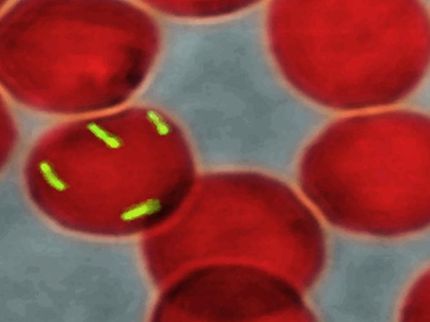New DNA sequencing nanopore
VIB collaborates with Oxford Nanopore Technologies
VIB is proud to announce that the lab of Han Remaut (VIB/Vrije Universiteit Brussels) has teamed up with Oxford Nanopore Technologies for the development of nanopore sensing technology. VIB pioneered work on a protein nanopore, CsgG, which was developed into a sensing nanopore by Oxford Nanopore and the latest version will soon feature as 'R9' in the MinIONTM handheld DNA sequencer and the PromethIONTM system.
The work of Han Remaut's lab elucidated unique mechanistic and structural features of the pore protein, termed CsgG. CsgG forms a membrane pore through which proteins are transported in certain bacteria. Together with co-author Stefan Howorka of University College London (UCL), it was postulated that these features might make CsgG a prime candidate for nanopore sensing applications. VIB and UCL Business PLC, UCL's technology transfer company, have been working with Oxford Nanopore to develop the properties of this nanopore so that it can deliver optimal nanopore sequencing data.
Floor Stam, Business Development Manager at VIB: "This collaboration is a prime example of high-quality academic research leading to an unexpected but very valuable application. VIB is proud to have a positive impact on Oxford Nanopore Technologies as a company, on the continued and improved availability of sequencing solutions in both laboratories and remote areas, and to show once more that investments in basic science pay off for the local community and economy"
Nanopore sequencing is a technology where strands of DNA are guided through a narrow protein pore -- a nanopore -- and the variations in the ionic current through the pore are indicative of what nucleotides (DNA letters) are passing through. As such, the sequence of the pore-threading DNA strands is decoded. The structure of the nanopore greatly influences many aspects of the sensing process, for example the speed at which the DNA can be passed through the nanopore and the potential quality of the sequence reads.
Preliminary tests in 2014-2015 indicated that CsgG-derivatives give stable currents and generate data of superior quality as compared to other nanopore sensors. Oxford Nanopore has since been fine-tuning the structure of the nanopore for optimal sensing and integration into its electronic sensing devices. As part of Oxford Nanopore's continuous upgrading of every part of its sensing technology, the developed CsgG pore will shortly be released into MinION consumables as 'R9'. Also, the high throughput/high sample DNA sequencing device PromethION, which is being prepared for release in the PromethION Early Access Programme, will use R9.
Alongside the value the alliance with VIB brings to the company's product development, it will also fuel basic science discoveries in the lab of Remaut. "It is very satisfying to see our basic research impacting new technologies like those developed by Oxford Nanopore Technologies", Remaut comments. "We solved the atomic structure of the CsgG pore to understand its role in an unusual protein transport pathway in bacteria. Strikingly, the pore's structure revealed a unique buildup, making it an ideal tool for nanopore technologies. Collaborating with Oxford Nanopore will allow us to study CsgG's natural mode of action in bacteria even further." The main focus of the lab lies in the area of bacterial secretion and biofilm formation, a fundamental research line that holds great potential in the fight against bacterial infections.
Original publication
Parveen Goyal, Petya V. Krasteva, Nani Van Gerven, Francesca Gubellini, Imke Van den Broeck, Anastassia Troupiotis-Tsaïlaki, Wim Jonckheere, Gérard Péhau-Arnaudet, Jerome S. Pinkner, Matthew R. Chapman, Scott J. Hultgren, Stefan Howorka, Rémi Fronzes & Han Remaut; "Structural and mechanistic insights into the bacterial amyloid secretion channel CsgG"; Nature; 2016
Most read news
Original publication
Parveen Goyal, Petya V. Krasteva, Nani Van Gerven, Francesca Gubellini, Imke Van den Broeck, Anastassia Troupiotis-Tsaïlaki, Wim Jonckheere, Gérard Péhau-Arnaudet, Jerome S. Pinkner, Matthew R. Chapman, Scott J. Hultgren, Stefan Howorka, Rémi Fronzes & Han Remaut; "Structural and mechanistic insights into the bacterial amyloid secretion channel CsgG"; Nature; 2016
Organizations
Other news from the department science

Get the life science industry in your inbox
By submitting this form you agree that LUMITOS AG will send you the newsletter(s) selected above by email. Your data will not be passed on to third parties. Your data will be stored and processed in accordance with our data protection regulations. LUMITOS may contact you by email for the purpose of advertising or market and opinion surveys. You can revoke your consent at any time without giving reasons to LUMITOS AG, Ernst-Augustin-Str. 2, 12489 Berlin, Germany or by e-mail at revoke@lumitos.com with effect for the future. In addition, each email contains a link to unsubscribe from the corresponding newsletter.




















































